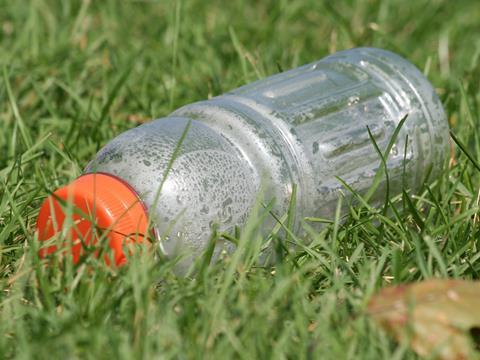
RECOUP is unveiling The Litter Composition & Pathways Project (LCPP), which aspires to standardise the approach to collecting and analysing litter, gather reliable data around its composition, and assist decision-makers in the development of new preventative policies.
Over two million pieces of litter are dropped in the UK every day, according to Keep Britain Tidy. In light of increasing environmental pollution, political and industrial players are calling for improved data and evidence on litter to make informed policy decisions and develop effective environmental policies.
Current projects are said to face limitations when it comes to collecting data, which in turn leads to inconsistent and unreliable data, RECOUP says. It adds that citizen science, while frequently utilised and valuable in its own right, may not result in ‘the most reliable data’.
The LCPP seeks to develop a standardised and evidence-based approach for the collection and analysis of litter and produce a comprehensive data set. This is set to be peer-reviewed to ensure its validity and reliability, with the process as a whole aiming to review, challenge, and provide robust evidence in relation to the composition of litter.
So far, RECOUP reports the development of a draft methodology for the collection and sorting of litter, which is now ready for testing and peer reviewing. The charity plans to work alongside local litter-picking groups to collect more material for analysis.
It expects to share the finalised methodology and final data set with the UK government, devolved administrations, and key stakeholders in the hopes of informing future policy decisions.
The project also anticipates the use of artificial intelligence to analyse the composition of discarded materials and litter and eventually generate scalable data. An initial phase of litter analysis through AI technology has taken place, with a dedicated “Litter Lab” set to be established at RECOUP’s offices for more advanced analysis.
RECOUP underlines the importance of collaborative and evidence-based efforts to keep litter out of the natural environment.
This development follows RECOUP’s River and Ocean Plastics Collection and Recycling Programmes report, which warned that ‘inconsistency and ambiguity in language and operations’ could hinder efforts to remove plastic waste from marine environments and threaten packaging manufacturers’ access to recycled materials.
On the other hand, Prevented Ocean Plastic is taking its own steps towards reducing litter – working alongside the University of Georgia on a research project to create a new tool and help stakeholders and community leaders understand the process of inland litter entering the sea, as well as planning to open 25 high-volume collection centres across various global regions by 2025.
Meanwhile, Borealis and Ecopost are working to formalise waste collection processes, expand recycling capacity, and train and recruit collectors in Kenya in a bid to keep plastic waste out of the environment.
If you liked this article, you might also enjoy:
McKinsey on whether or not on-pack sustainability claims affect consumer spending
A deep dive into the most important packaging sustainability trends and solutions














No comments yet